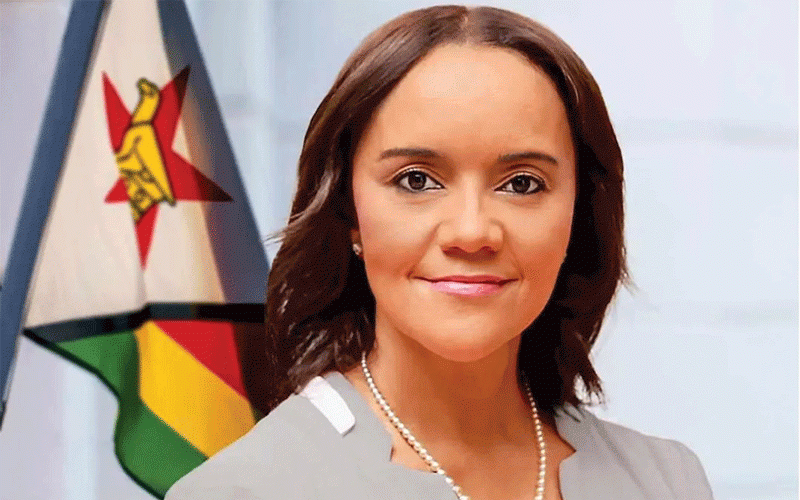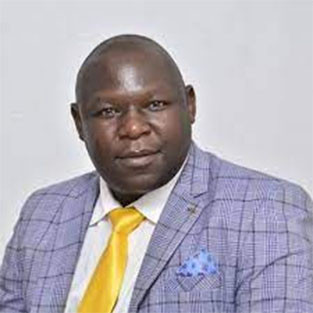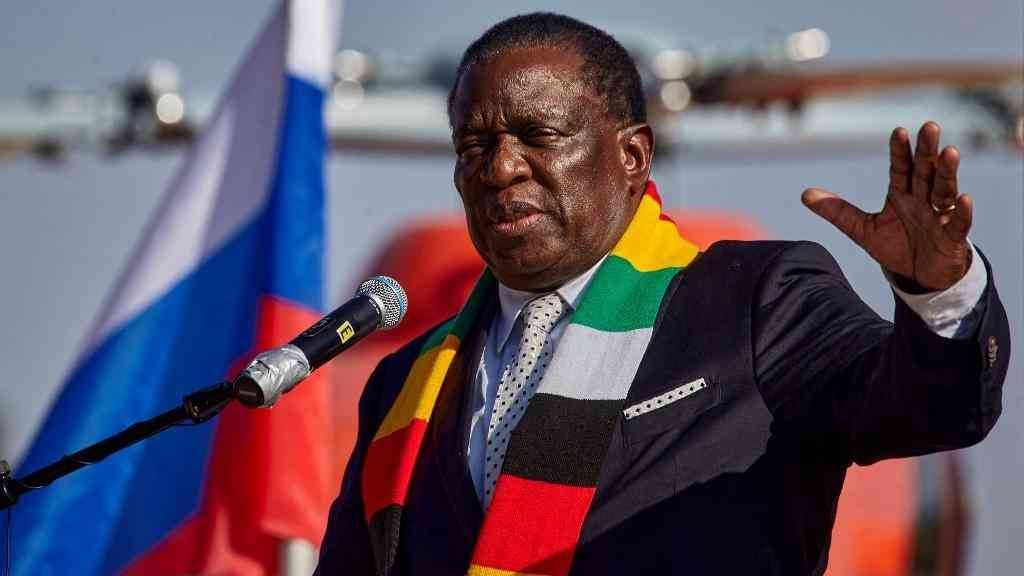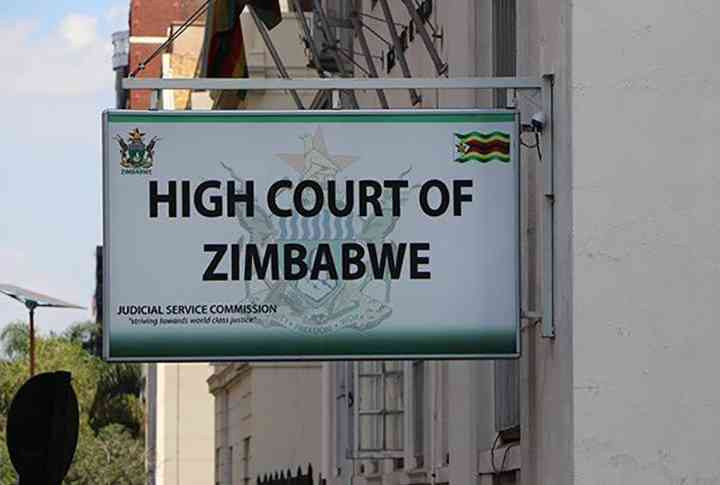
Elisabeth Valerio (pictured) was the only female presidential candidate in the disputed August 2023 elections and she has vowed to keep the ruling Zanu PF party on its toes despite Zimbabwe’s suffocating political environment.
A businesswoman, scientist, conservationist and leader of the opposition United Zimbabwe Alliance (UZA) formed on May 29, 2021, Valerio says Zanu PF has taken Zimbabwe to the Stone Age era.
She was added to the ballot after winning a court challenge in which the Zimbabwe Electoral Commission (ZEC) had turned down her nomination, claiming she had failed to meet the deadline to settle her nomination fees.
Valerio (EV) garnered 6,989 votes. She recently sat down for an interview with our news editor Nqobani Ndlovu (NN).
Below are the excerpts from the interview
NN: August 2023 elections came and went, and since then we have heard little about your party and its other activities. Your party has literally gone into hibernation. Does your party still exist?
EV: UZA was founded by the people and is embedded in the people, rooted in the principle of democracy, justice, equity and Ubuntu. UZA is alive and very active.
We can’t afford to hibernate given the big responsibility we have to usher in a new and better Zimbabwe.
- Corruption Watch: Get scared, 2023 is coming
- Corruption Watch: Get scared, 2023 is coming
- Letters: Ensuring Africa’s food security through availability of quality seeds
- Is military's involvement in politics compatible with democracy?
Keep Reading
We remain committed to our mission and vision and have been working to develop our policy framework and strengthen our party structures.
We consistently work to educate the electorate with thought leadership presented in statements and communiques that articulate our party position on issues that affect our citizens.
UZA candidates who contested in the August 2023 general elections also continue with the impactful work within our communities.
I think this is the distinct difference between UZA and most other political formations in Zimbabwe. UZA patriots are not activists.
NN: As its leader, what have you been up to politically since the August 2023 elections?
EV: We participated in the 2023 harmonised elections, as barely a new baby.
A lot was needed for us to establish a strong institution that is well represented and solid enough to deal with the Zimbabwean political terrain.
We realised our gaps in the previous elections and between elections it’s our time to build and reconfigure the party.
We are in the wards and households building the party. We are organising and mobilising for the party, we are building structures to ensure that the people’s cause is protected. We are here and we have not disappeared.
UZA will challenge for the presidency again in the next harmonised elections.
NN: Some critics suggest that your party alongside other ‘smaller’ parties were sponsored by the state to present a picture of a multi-party democracy.
Other critics suggest that a number of parties such as yours were targeting Polad spoils. What is your response to these claims?
EV: This reflects the toxicity that we have in Zimbabwe’s politics where people get into politics for bread crumbs and spoil democracy.
Many would want to wish us away. Unfortunately UZA is not a proxy and UZA belongs to the people of Zimbabwe.
We can’t afford to compromise democracy as we have seen with the old opposition parties in Zimbabwe.
On the Polad issue, people should ask themselves, has UZA ever joined Polad?
Polad was a platform for political opportunists and political cowards to ratify a failed election process and turn a blind eye on injustices, corruption and political violations.
UZA does not believe that Polad is a genuine platform for dialogue and consensus-building among political actors in Zimbabwe since it has failed to produce tangible results.
NN: You raised a number of concerns over the electoral environment ahead of the August 2023 elections. If any election is to be held tomorrow, are you going to contest, if yes, why? And if not, why?
EV: Electoral reforms remain our biggest demands and one of the key political reforms we will continue to push for.
We continue to reiterate that the political environment in Zimbabwe has not been ready for a free, fair and credible election for a long time now.
The Constitution must be protected and should ensure that every person who wishes to participate in any election either as a voter or candidate must do so freely without interference.
The August 2023 elections as well as the recent by-elections were widely disputed and we can see from the recent turn out at by-elections that the people of Zimbabwe have no confidence in ZEC.
As leadership we get our mandate from the people, if the people want us to participate we will honor their request and if they are of the view that we must not we will not participate.
If elections were to be properly monitored by the United Nations or other credible organisations, perhaps then it would make sense to participate, otherwise, it’s all a sham.
NN: What major electoral reforms do you think Zimbabwe needs to hold credible elections?
EV: Electoral reforms are not the ultimate panacea to the Zimbabwean election problem.
However, they are a good start. We must reform Zec. As an institution, it needs to be demilitarised.
The staffing and resourcing of Zec must be transparent and guided by clear laws that avoid the current conflations and entanglements.
There must be an amendment of presidential appointment powers to limit the President’s reach in appointing Zec officials - we need an independent Zec that is not beholden to the president.
There are also issues like the voter’s roll, which should be transparent and accessible to anyone at any given moment.
We must also look at the role of the security sector in elections.
The police are not providing a politically safe environment, and the army continues to be used as a weapon for intimidation rather than protection for the citizens
The bottom line is the political field must be level.
There is inadequate representation of women in political posts. We must also address the issue of state media bias.
All state institutions must be independent and no political party must abuse any state institution or use state institutions for political benefits.
These are the issues that must be addressed for us to have free, fair and credible elections.
NN: We are just a year-old after the elections, and already we see there are moves by some Zanu PF supporters to amend the constitution to ensure President Emmerson Mnangagwa stays in office after his term expires in 2028.
What do you make of this push to amend the constitution?
What risks does that push pose not only to Zanu PF, but the country? What is your message to those that support/oppose this push to amend the constitution?
EV: Mutilation of the constitution of Zimbabwe is a big blow to democracy.
Political leaders must respect the constitution and must not hold the whole country at ransom for selfish reasons.
Progressive Zimbabweans must reject this nefarious plan and stand ready to defend the constitution.
We want to warn those masquerading as democrats while pushing for this plan to stop taking Zimbabweans and Zimbabwe back into Rhodesia.
We reject one party state plans by the Zanu PF regime. We have seen this before, during the days of Robert Gabriel Mugabe.
Why would one want to die in office, what is it that you want to protect? Cartels must stop this interference and respect our country’s constitution.
On another note, this serves as a bitter lesson for voters to tread more carefully when “empowering” politicians, especially those who have a verifiable history and reputation for bad governance.
Too much power without checks and balances leads to abuse. Instead of strengthening checks and balances, they dismantle them.
NN: Early this year, authorities introduced the Zimbabwe Gold (ZiG) currency. We have seen the ZiG losing value of late. What’s your prediction on its fate?
EV: In my view, its introduction was ill advised and ill timed.
They ought to have stabilised the exchange rate first before attempting to introduce any new currency.
Addressing economic issues is not a game of experiments, it demands that we be realistic in our approach and in our case analysis.
Also, as long as the financial institutions cannot provide forex to meet domestic needs the ZiG is going to fail, so we also have to look at what is driving rate inflation.
You need forex to pay school fees, buy fuel, pay for transport, accommodation, medical care, passports etc etc yet your only source of forex is the black market.
To make things worse, no one wants to keep the ZiG, it’s not the preferred mode of savings, because as we all know, currencies in Zimbabwe can literally change overnight.
I’ve said it many times - we must fix the basics to build and stabilise the economy and to build confidence.
The perpetually inconsistent and obscure monetary policies and the unstable political environment all are factors that must first be addressed.
NN: Lastly, what’s your general analysis of the economic situation?
EV: There is absolutely no hope with the current government. Absolutely not!
For 44 years they have failed to even maintain the existing infrastructure and systems. They have taken the entire country back to the Stone Age era.
Zanu PF can’t reform itself and can’t reform the economy. They have bred criminals, and normalised corruption - you can’t expect a regime that has no scruples, like Zanu PF, to reform the economy.
With Zanu PF in power Zimbabwean people have continued to suffer.
The economy is being managed and promoted through propaganda but unfortunately the reality on the ground will deal with the propaganda.
The preferred economic policies have failed to grow and expand the economy, it continues to shrink, and the current leaders have accelerated de-industrialisation.
The policies are failing to address this.
The inequalities are growing, and poverty levels are increasing. With the current drought induced crisis, we are likely to experience negative growth and an increase in poverty.
The majority of people in our country are now living on less than 50c a day - they are literally living in abject poverty.
There is high unemployment, with more people joining the unemployed, and there is no hope of a recovery in the near future.









